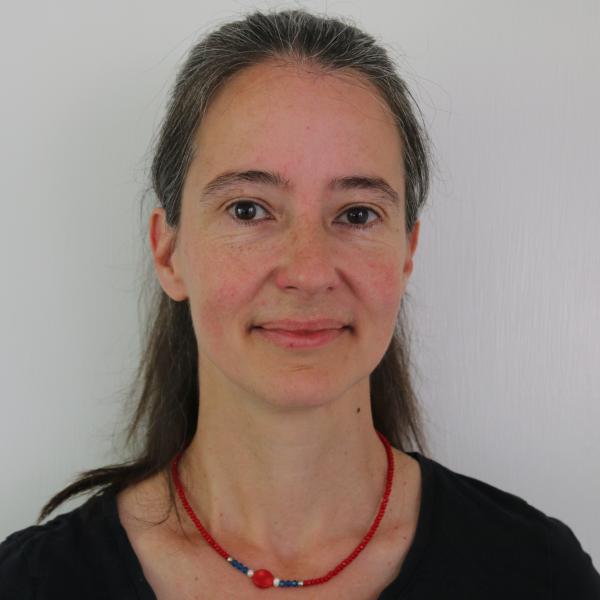Professor Renee Timmers
MA, PhD, PGCERT
School of Languages, Arts and Societies
Professor of Music Psychology


Full contact details
School of Languages, Arts and Societies
1.15
Jessop Building
Leavygreave Road
Sheffield
S3 7RD
- Profile
-
My first degree was in Musicology (MA), which I studied in Amsterdam. Thereafter, I pursued a PhD in Psychology (Social Sciences) at the Radboud University Nijmegen. I was involved in collaborative research combining perspectives and methods from psychology, computer science and music theory to investigate perception and cognition of music. My main focus was on (cognitive) rules that underlie the expressive timing of music, but also the freedom that performers have to perform music expressively and creatively within these rules.
After my PhD, I was a postdoctoral researcher for six years at institutes in Italy (University of Genoa), Austria (OEFAI), the UK (Kings College London), the Netherlands (Radboud University Nijmegen) and the USA (Northwestern University). I worked at departments of music, psychology and computer science gaining relevant cross-disciplinary experience. My research focused on the communication of emotions through music performance, including a comparison of emotional expression in early and later recordings of Schubert songs, and the development of automated visual feedback on expressive performance.
In Sheffield, I teach Psychology of Music at UG and PG level, direct the MAs in Psychology of Music, and direct the research centre ‘Music Mind Machine in Sheffield’. The centre promotes collaboration and exchange across disciplines and between people with shared interests in music cognition, including students and staff. I regularly organise events within the context of the research centre and beyond, including conferences, seminars and workshops.With my colleagues, I am exploring new conference formats that promote geographical inclusivity of people at a lower financial and ecological cost, by combining live and virtual participation. I have been co-editor of Empirical Musicology Review, associate editor of Psychomusicology: Music, Mind & Brain, and served on the editorial board of several journals including Psychology of Music and Journal of New Music Research. I have interrupted these editorial duties to serve as president of ESCOM from 2019-2021.
- Research interests
-
My current research projects investigate ensemble performance, in particular what visual and auditory nonverbal cues musicians use to coordinate and communicate with each other during performance. I am interested in finding out what neurocognitive processes are involved in joint music performance and how performers develop and learn these skills.
I also investigate how multiple sense-modalities play a role and interact in the perception and performance of music, and in our affective responses to music. When listening to music, we may visually imagine the sounds, ‘feel’ the sounds or move along in reality or imagery. With research students and collaborators, I investigate what the origin may be of cross-sensory correspondences, what role they play in performance and musical learning, and how we may need to adapt our understanding of ‘music’ as multimodal and actively enacted.
My aim is to work towards applications of research findings and investigate music perception and performance in a variety of contexts and purposes. To realise these aims, I collaborate with external partners, including collaborators at the Royal Hallamshire Hospital and at the Sheffield based company SleepCogni.
- Publications
-
Books
- Psychological Perspectives on Musical Experiences and Skills. Open Book Publishers.


Journal articles
- Reassessing the goals of musical activities for people living with dementia: Supporting joint agency, selfhood and couplehood with an embodied and relational approach. Journal of Aging Studies, 72, 101289-101289.


- Group singing-related technique workshops for people with inducible laryngeal obstruction: a feasibility study. Music & Science, 7. View this article in WRRO


- Designing new musical technologies for wellbeing – exploring the needs and preferences of those living with dementia. Alzheimer's & Dementia: The Journal of the Alzheimer's Association, 19(S19). View this article in WRRO


- Designing new musical technologies for wellbeing – exploring the needs and preferences of those living with dementia. Alzheimer's & Dementia: The Journal of the Alzheimer's Association, 19(S11). View this article in WRRO


- Coordinating actions as active agents in a dynamic musical environment: Comment on “Musical engagement as a duet of tight synchrony and loose interpretability” by Tal-Chen Rabinowitch. Physics of Life Reviews.


- The same but different. Multidimensional assessment of depression in students of natural science and music. Health Psychology Research, 11(1).


- Using technology to assist creative arts activities in dementia care. Alzheimer's & Dementia, 18(S8).


- Accessible and meaningful engagement for people living with dementia when transitioning arts activities online. Alzheimer's & Dementia, 18(S9).


- Editors’ Introduction: Connectivity and Diversity in Music Cognition. Empirical Musicology Review, 19(1), 1-9.


- Characterizing music for sleep: A comparison of Spotify playlists. Musicae Scientiae.


- Digital adaptations to arts programme delivery for people living with dementia in response to the COVID-19 pandemic. Arts & Health, 1-18.


- Distinguishing between musical excerpts learned by novices individually or in pairs. Psychology of Music.


- The relationship between musicianship and pain. Is chronic pain and its management a problem for student musicians only?. Frontiers in Pain Research, 4, 1194934.


- Action, emotion, and music-color synesthesia: an examination of sensorimotor and emotional responses in synesthetes and non-synesthetes.. Psychological Research. View this article in WRRO


- Book Review: Aaron Williamon, Jane Ginsborg, Rosie Perkins, and George Waddell, Performing music research: Methods in music education, psychology, and performance science. Musicae Scientiae, 102986492211297-102986492211297.


- Patterns of verbal interaction in newly formed music ensembles. Frontiers in Psychology, 13.


- The use of technology for arts-based activities in older adults living with mild cognitive impairment or dementia: A scoping review. Dementia, 147130122211273-147130122211273.


- Music-colour synaesthesia: Sensorimotor features and synaesthetic experience. Conference on Interdisciplinary Musicology.


- Beyond WEIRD and towards the decolonisation of music for wellbeing and health. Conference on Interdisciplinary Musicology.


Chapters
- 1. Introduction, Psychological Perspectives on Musical Experiences and Skills (pp. 1-24). Open Book Publishers


- 8. Influences of Physical and Imagined Others in Music Students’ Experiences of Practice and Performance, Psychological Perspectives on Musical Experiences and Skills (pp. 165-188). Open Book Publishers


- 4. Aesthetic Emotions in Music, Psychological Perspectives on Musical Experiences and Skills (pp. 73-96). Open Book Publishers


- 1. Introduction, Psychological Perspectives on Musical Experiences and Skills (pp. 1-24). Open Book Publishers


- 17. Conclusion: Progressing the State of the Art of Music Psychology, Psychological Perspectives on Musical Experiences and Skills (pp. 371-386). Open Book Publishers


- Introduction: Music psychology research in the Western Balkans and Western Europe (pp. 1-23).


- Influences of physical and imagined others in music students' experiences of practice and performance, Psychological Perspectives on Musical Experiences and Skills: Research in the Western Balkans and Western Europe (pp. 165-187).


- Aesthetic Emotions in Music: Theory, Measurements, and Cross-cultural Comparison, Psychological Perspectives on Musical Experiences and Skills: Research in the Western Balkans and Western Europe (pp. 73-95).


- Conclusion: Progressing the state of the art of music psychology, Psychological Perspectives on Musical Experiences and Skills: Research in the Western Balkans and Western Europe (pp. 371-386).


- Weariness, adaptability and challenging 'viability': Creative freelancers and pandemic resilience in South Yorkshire, Adaptation and Resilience in the Performing Arts: The Pandemic and Beyond (pp. 93-113).


- Weariness, adaptability and challenging ‘viability’, Adaptation and resilience in the performing arts Manchester University Press


Conference proceedings papers
- Agency and Creativity in Musical Interaction for those living with Dementia and Cognitive Decline. Proceedings of the International Conference on New Interfaces for Musical Expression


Reports
Preprints
- The relative contributions of subjective and musical factors in music for sleep, Center for Open Science.


- How Is Music Making Related to Executive Functions? A Systematic Review and Meta-Analysis, Center for Open Science.


- Unravelling the effects of empathy on social bonding following interpersonal synchrony through music: A mixed-methods approach, Center for Open Science.


- The relationship between musicianship and pain. Is chronic pain and its management a problem for student musicians only?, Cold Spring Harbor Laboratory.


- The same but different. Multidimensional assessment of depression in students of natural science and music, Cold Spring Harbor Laboratory.


- Distinguishing between musical excerpts learned by novices individually or in pairs, Center for Open Science.


- Psychological Perspectives on Musical Experiences and Skills. Open Book Publishers.
- Research group
-
The research projects that I supervise investigate aspects of music cognition using experimental and quantitative, but sometimes also qualitative approaches to improve our understanding of the processes underlying the perception and performance of music. The projects may be conducted in the lab or in real-life, and often a combination of the two within a single project. I regularly co-supervise projects with colleagues from other departments, who have expertise in e.g. linguistics, computational modelling or neuropsychology.
Current PhD supervision
- Jonathan Ayerst. The psychology of improvisation. Charles Bryar Scholarship
- Caroline Curwen. Perception of music in music-colour synaesthetes
- Rory Kirk. A musical biofeedback loop to facilitate sleep. Funded by EPSRC
- Shen Li. Conceptions of piano timbre in a music performance and pedagogy context. Funded by Chinese Scholarship Council
- Alexander Stamatiades. Well-formedness and expectation in musical melodies
Past PhD project supervision
- Yuko Arthurs (2016). The creation of consonance: How musical context influences chord perception
- Marilyn Blank (2013). Communication and coordination in piano duos
- Ioanna Filippidi (2018). Involuntary musical imagery as conditioned by everyday musical listening
- Henrique Meissner (2018). Teaching expressive performance to children. AHRC funded
- Tim Metcalfe (2017). Communicating with the environment through artificial ears: Perception of emotion in music and speech by cochlear implant users. Funded by White Rose College of Arts and Humanities
- Nicola Pennill (2019). Teaching and learning of ensemble communication. Funded by White Rose College of Arts and Humanities
- Andrea Schiavio (2014). Music in (en)action: Sense-making and neurophenomenology of musical experience
- Grants
-
- 2020 EOI-QR UKRI funding (£24,589) for survey and conference on Mapping music for health and wellbeing in Sheffield.
- 2016 Leverhulme Trust International Academic Fellowship (£21,703) for research visit to MARCS Institute, University of Western Sydney. The role of cross-modal information in inter-performer musical communication.
- 2015 WRoCAH PhD network, 3 PhD positions at Sheffield, York and Leeds.
- 2012 British Academy International Partnership and Mobility Scheme (£27,230) with Zohar Eitan – Cross-modal perception of music.
- Professional activities and memberships
-
Several of the events and workshops that I have been involved with have been open to the general public, with a focus on musicians, musical learners and educators, but also music lovers more generally. In workshop settings, attendees participate in activities and share their insights and experiences in addition to hearing about research findings and knowledge.
Recent events:- March 2020: Mapping music for wellbeing in Sheffield. One-day conference for academic and non-academic audiences.
- June 2019: Families & music. A one-day conference in Mexico City.
- Oct 2018 & Oct 2019: Sound Teaching. One-day interactive conference for instrumental teachers and musicians
- Sept 2018 Colourama: A synaesthesia experience. Festival of the Mind.
